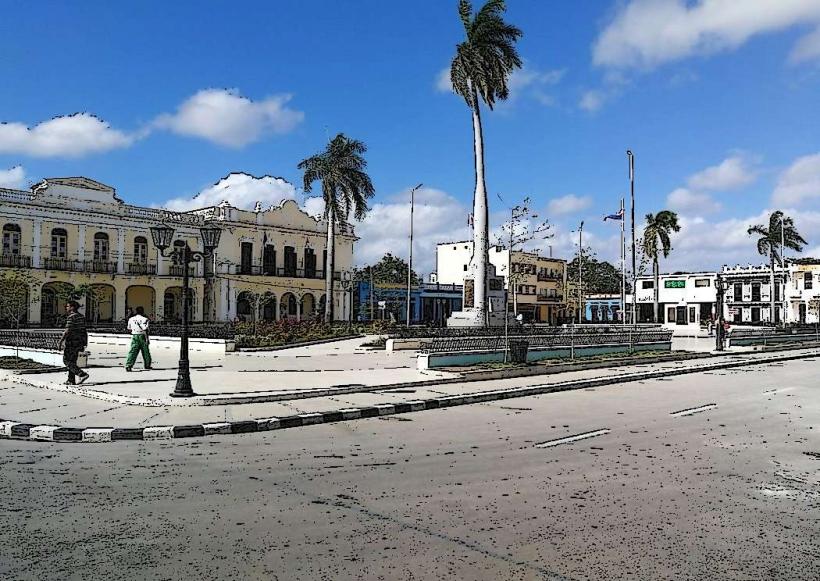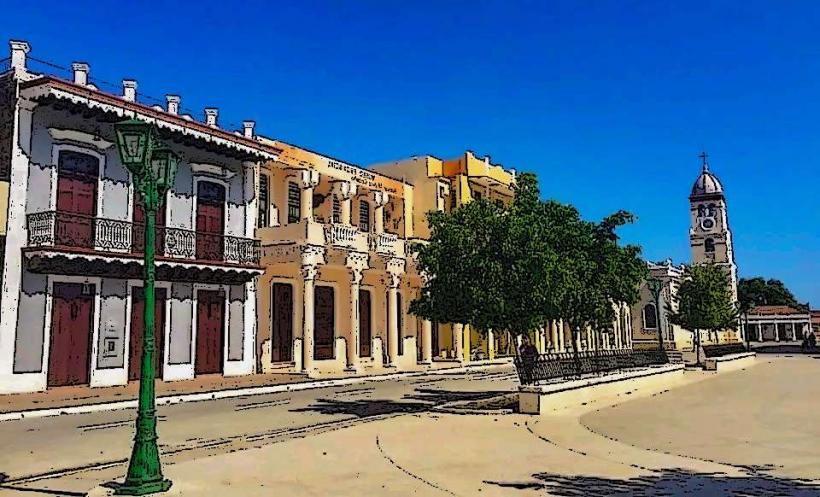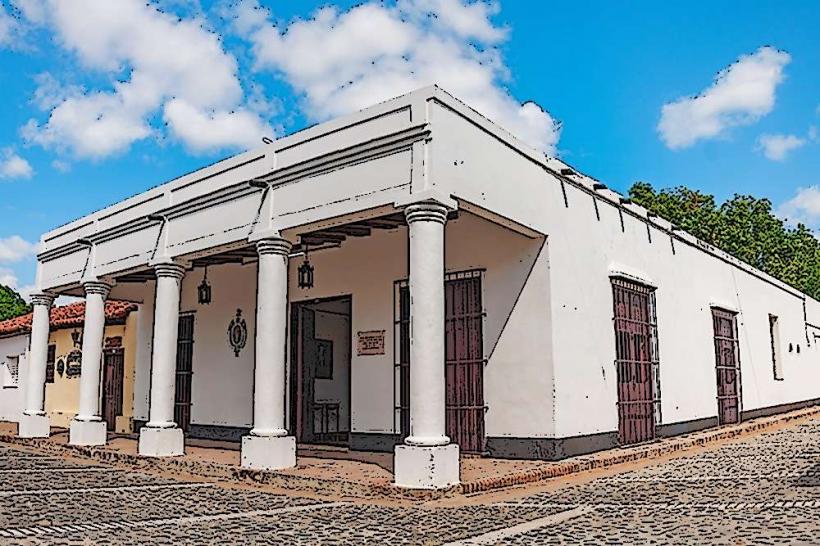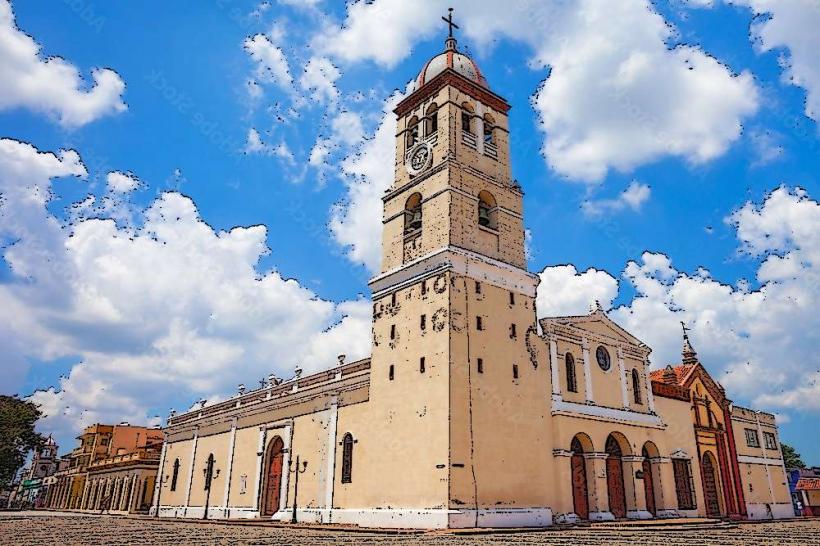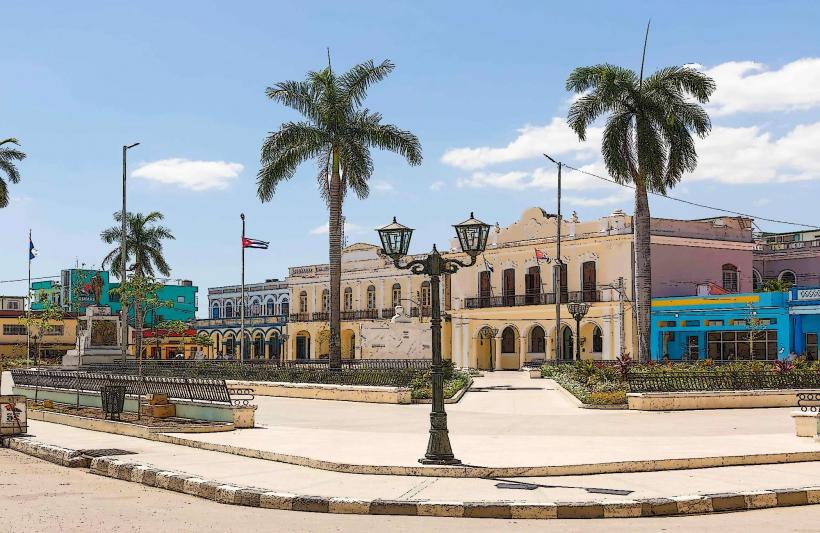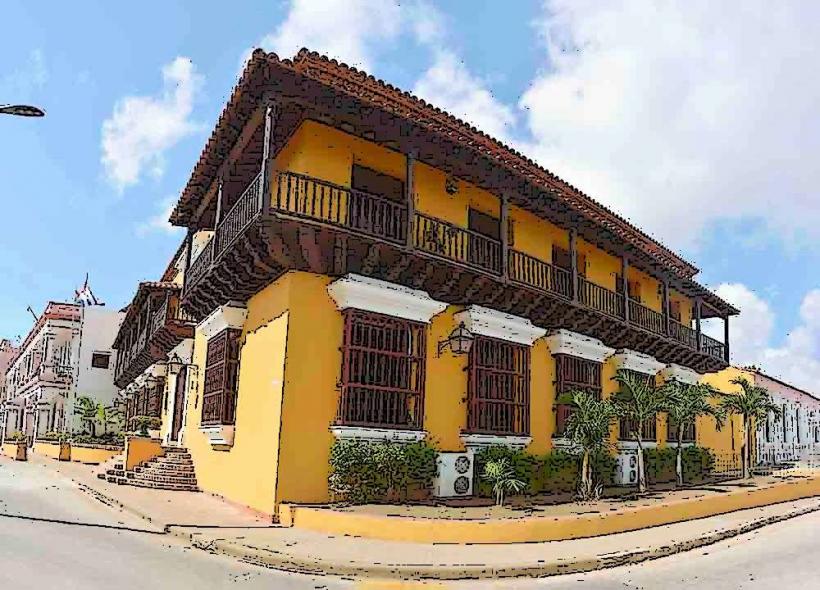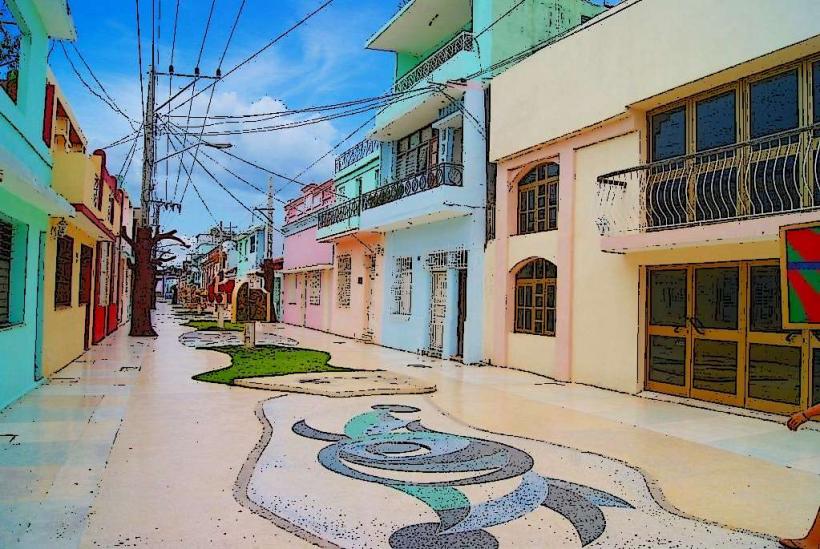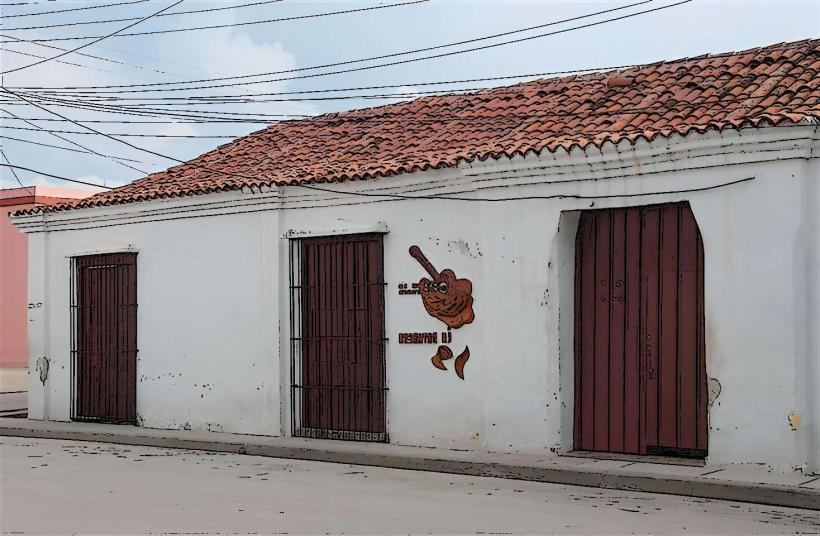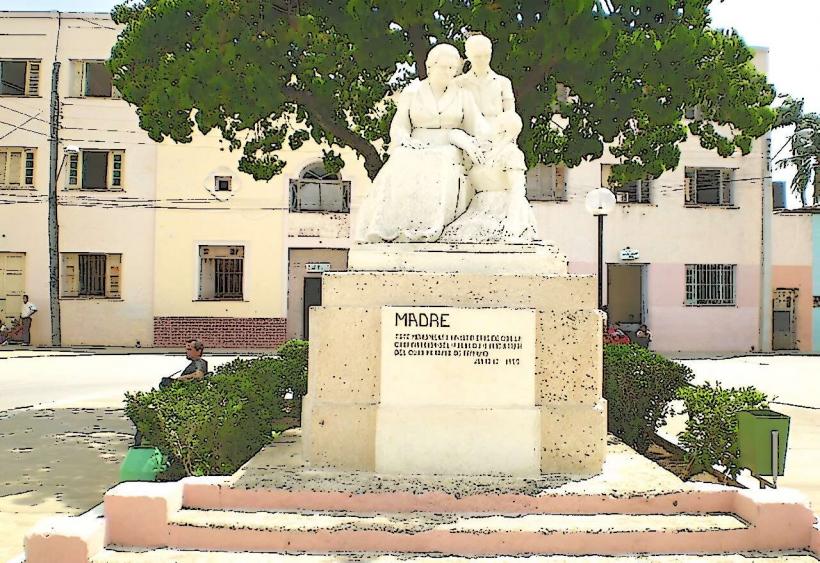Information
Landmark: Monumento a la Toma de BayamoCity: Bayamo
Country: Cuba
Continent: North America
Monumento a la Toma de Bayamo, Bayamo, Cuba, North America
The Monumento a la Toma de Bayamo (Monument to the Taking of Bayamo) is a significant historical landmark located in Bayamo, Cuba, commemorating a pivotal moment in the country's struggle for independence during the Ten Years' War (1868–1878), which was the first major war of Cuban independence against Spanish colonial rule.
Key Features of the Monument:
Historical Significance:
- The Toma de Bayamo refers to the capture of Bayamo by Cuban independence forces led by Carlos Manuel de Céspedes on October 12, 1868. This event marked a crucial victory for the Cuban insurgents during the Ten Years' War, as Bayamo was an important Spanish stronghold at the time.
- The monument symbolizes the first victory in a long and bitter struggle for Cuban independence, marking a milestone in the battle against Spanish colonial rule and the determination of Cuban patriots to seek freedom.
Monument Details:
- The Monumento a la Toma de Bayamo is designed to honor the victory achieved by Carlos Manuel de Céspedes and his army of independence fighters. The monument depicts a granite obelisk topped with a bronze statue of Carlos Manuel de Céspedes, one of the most revered figures in Cuban history.
- The obelisk symbolizes the strength and resolve of the Cuban people in their fight for freedom, while the statue of Céspedes honors his role as the leader of the Cuban independence movement during the early stages of the Ten Years' War.
Symbolism:
- The Toma de Bayamo was a turning point in Cuba's battle for independence, as it demonstrated that the Cuban forces could successfully challenge Spanish authority and gain control over key cities. The monument represents not only the victory at Bayamo but also the larger struggle for Cuban freedom and self-determination.
- Carlos Manuel de Céspedes, known as the Father of Cuban Independence, is depicted as a heroic figure who made the ultimate sacrifice for the liberation of Cuba. His leadership and ideals of liberty and equality continue to inspire generations of Cubans.
Location and Accessibility:
- The Monumento a la Toma de Bayamo is located in a prominent area of Bayamo, one of the oldest cities in Cuba and a historically significant location in the nation’s independence movements. The monument is situated near Parque Céspedes, the city’s central square, making it easily accessible to visitors and locals alike.
- Its location in the heart of Bayamo places it close to other historical landmarks in the city, including the Bayamo Cathedral, Casa Natal de Carlos Manuel de Céspedes, and the Plaza de la Revolución, creating a historical circuit for visitors interested in exploring the rich revolutionary past of the city.
Role in Cuban National Identity:
- The Monumento a la Toma de Bayamo is more than just a commemorative statue; it is a symbol of Cuban national pride and a reminder of the long and difficult struggle for Cuban independence. The monument emphasizes the unity and resolve of the Cuban people in their pursuit of freedom, echoing the same revolutionary spirit that would later define the Cuban Revolution of 1959.
- It serves as an educational site, informing visitors about the important events of the Ten Years' War and their lasting impact on Cuba’s national identity.
Cultural and Educational Importance:
- The monument is a key point of interest for visitors to Bayamo, both for its historical significance and as a site for reflection on Cuba’s journey to independence. The Monumento a la Toma de Bayamo is a place where visitors can learn about the role of Carlos Manuel de Céspedes and other freedom fighters who shaped the nation’s future.
- It is also an important part of civic celebrations and commemorations related to Cuban independence, especially on October 12, the anniversary of the Toma de Bayamo.
Visitor Experience:
- Visiting the Monumento a la Toma de Bayamo allows tourists to reflect on the courage and sacrifice of Cuba’s independence fighters. The monument provides a space for visitors to learn about the early stages of the Cuban independence movement and understand the impact of these struggles on the Cuban identity.
- The monument is an important stop on tours of Bayamo, offering a connection to the historical events that helped shape the Cuban nation.
Conclusion:
The Monumento a la Toma de Bayamo stands as a powerful tribute to Carlos Manuel de Céspedes and the Cuban revolutionaries who fought for Cuba's freedom from Spanish colonial rule. As a symbol of Cuban resilience and national identity, the monument commemorates one of the earliest victories in Cuba’s long battle for independence. Its location in the heart of Bayamo, coupled with its historical and cultural significance, makes it a must-visit site for anyone interested in understanding the roots of Cuban independence and the profound sacrifices made to achieve Cuba's sovereignty.

